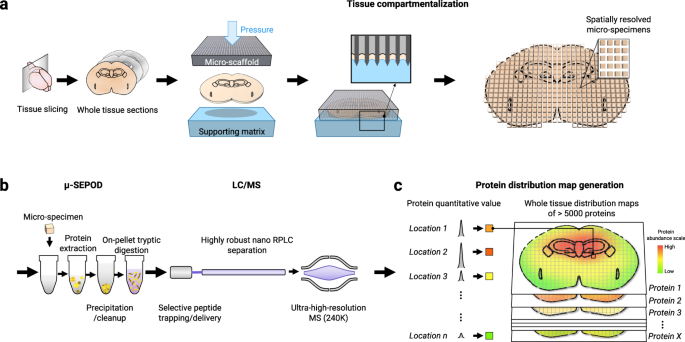心臓疾患や高血圧の治療に広く用いられているβブロッカーは、暴力犯罪に問われるリスクが低いということが、カロリンスカ研究所とオックスフォード大学による新しい登録ベースの研究で明らかになりました。 Beta blockers, which are widely used to treat heart conditions and high blood pressure, are associated with a lower risk of being charged with a violent crime, according to a new register-based study from Karolinska Institutet and the University of Oxford.
2023-01-31 スウェーデン王国・カロリンスカ研究所(KI)
◆今回の研究では、精神疾患による入院、自殺行動、自殺による死亡、暴力犯罪の告発など、精神医学的および行動学的なアウトカムを調査している。彼らは、2006年から2013年までの8年間、スウェーデンの140万人のβブロッカー使用者と、薬用期間と非薬用期間の自分自身を比較した。こうすることで、遺伝や健康歴など、関連性に影響を与える可能性のある背景因子を考慮することができたという。
◆βブロッカー治療を受けている期間は、暴力犯罪に問われるリスクが13%低く、これは分析期間中一貫していた。観察研究であるため、因果関係についての結論は慎重であるべきである。また、β遮断薬の使用は、精神疾患による入院のリスクを8%低下させ、自殺行為による治療や自殺による死亡のリスクを8%増加させることにもつながった。しかし、これらの関連は一貫していなかった。
◆「精神科への入院と自殺行為のリスクは、精神科の診断、過去の精神科の問題、βブロッカーが治療に用いていた心疾患の重症度と種類によって異なり、βブロッカーとこれらの結果には関連がないことを示唆しています」とYasmina Moleroは述べています。これまでの研究では、重篤な心疾患とうつ病や自殺のリスクの増加が関連しており、今回の結果は、βブロッカー治療ではなく、重篤な心疾患に伴う心理的苦痛やその他の障害が、重篤な精神疾患のリスクを高めることを示唆しているのかもしれません」と述べています。
<関連情報>
- https://news.ki.se/common-heart-medicine-associated-with-lower-rates-of-violence
- https://journals.plos.org/plosmedicine/article?id=10.1371/journal.pmed.1004164
β遮断薬と精神医学的および行動学的転帰との関連性。スウェーデンの140万人を対象とした集団ベースのコホート研究 Associations between β-blockers and psychiatric and behavioural outcomes: A population-based cohort study of 1.4 million individuals in Sweden
Yasmina Molero,Sam Kaddoura,Ralf Kuja-Halkola,Henrik Larsson,Paul Lichtenstein,Brian M. D’Onofrio,Seena Fazel
PLOS Medicine Published: January 31, 2023
DOI:https://doi.org/10.1371/journal.pmed.1004164
Abstract
Background
β-blockers are widely used for treating cardiac conditions and are suggested for the treatment of anxiety and aggression, although research is conflicting and limited by methodological problems. In addition, β-blockers have been associated with precipitating other psychiatric disorders and suicidal behaviour, but findings are mixed. We aimed to examine associations between β-blockers and psychiatric and behavioural outcomes in a large population-based cohort in Sweden.
Methods and findings
We conducted a population-based longitudinal cohort study using Swedish nationwide high-quality healthcare, mortality, and crime registers. We included 1,400,766 individuals aged 15 years or older who had collected β-blocker prescriptions and followed them for 8 years between 2006 and 2013. We linked register data on dispensed β-blocker prescriptions with main outcomes, hospitalisations for psychiatric disorders (not including self-injurious behaviour or suicide attempts), suicidal behaviour (including deaths from suicide), and charges of violent crime. We applied within-individual Cox proportional hazards regression to compare periods on treatment with periods off treatment within each individual in order to reduce possible confounding by indication, as this model inherently adjusts for all stable confounders (e.g., genetics and health history). We also adjusted for age as a time-varying covariate. In further analyses, we adjusted by stated indications, prevalent users, cardiac severity, psychiatric and crime history, individual β-blockers, β-blocker selectivity and solubility, and use of other medications. In the cohort, 86.8% (n = 1,215,247) were 50 years and over, and 52.2% (n = 731,322) were women. During the study period, 6.9% (n = 96,801) of the β-blocker users were hospitalised for a psychiatric disorder, 0.7% (n = 9,960) presented with suicidal behaviour, and 0.7% (n = 9,405) were charged with a violent crime. There was heterogeneity in the direction of results; within-individual analyses showed that periods of β-blocker treatment were associated with reduced hazards of psychiatric hospitalisations (hazard ratio [HR]: 0.92, 95% confidence interval [CI]: 0.91 to 0.93, p < 0.001), charges of violent crime (HR: 0.87, 95% CI: 0.81 to 0.93, p < 0.001), and increased hazards of suicidal behaviour (HR: 1.08, 95% CI: 1.02 to 1.15, p = 0.012). After stratifying by diagnosis, reduced associations with psychiatric hospitalisations during β-blocker treatment were mainly driven by lower hospitalisation rates due to depressive (HR: 0.92, 95% CI: 0.89 to 0.96, p < 0.001) and psychotic disorders (HR: 0.89, 95% CI: 0.85 to 0.93, p < 0.001). Reduced associations with violent charges remained in most sensitivity analyses, while associations with psychiatric hospitalisations and suicidal behaviour were inconsistent. Limitations include that the within-individual model does not account for confounders that could change during treatment, unless measured and adjusted for in the model.
Conclusions
In this population-wide study, we found no consistent links between β-blockers and psychiatric outcomes. However, β-blockers were associated with reductions in violence, which remained in sensitivity analyses. The use of β-blockers to manage aggression and violence could be investigated further.
Author summary
Why was this study done?
- β-blockers are primarily cardiac medications that are widely used for treating anxiety and are also suggested for the management of clinical depression and aggression, although research on efficacy is conflicting and limited by small samples and methodological problems.
- β-blockers have been linked to an increased risk of suicidal behaviour, but findings are inconclusive.
- More evidence using large samples and appropriate designs is needed on real-world effects on mental health and behavioural outcomes in people taking β-blockers.
What did the researchers do and find?
- We examined a population-based cohort of 1,400,766 persons in Sweden who had been treated with β-blockers using a within-individual design; i.e., we compared individuals to themselves during medication and non-medication periods to account for background factors that may confound associations.
- Periods on β-blocker treatment were associated with an 8% lower risk of being hospitalised due to a psychiatric disorder, a 13% lower risk of being charged with a violent crime by the police, and an 8% increased risk of being treated for suicidal behaviour or suicide mortality.
- Reduced associations with violent charges were consistent across sensitivity analyses, while associations with suicidal behaviour and psychiatric hospitalisations varied by specific psychiatric diagnoses, past psychiatric problems, and cardiac severity.
What do these findings mean?
- The widespread use of β-blockers to manage anxiety is not supported in this real-world study that examined presentations of anxiety in secondary care.
- Studies using other designs (e.g., randomised controlled trials) are needed to better understand the role of β-blockers in the management of aggression and violence.
- If findings on violence are confirmed by studies that use other designs, β-blockers could be considered to manage aggression and hostility in individuals with psychiatric conditions.

